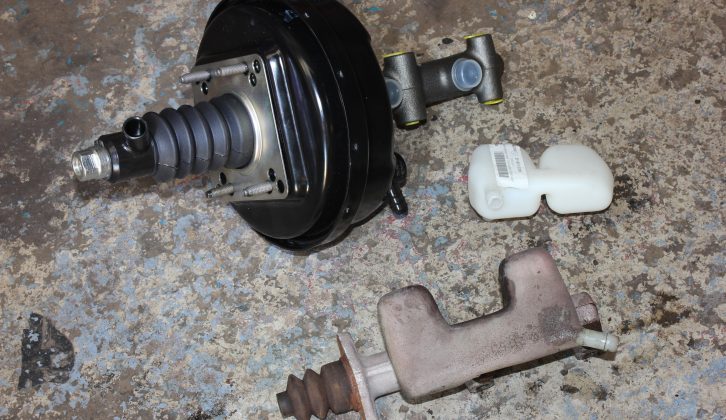Owning a classic VW Kombi is a dream come true for many many. These iconic vehicles capture the spirit of adventure and nostalgia. As you hit the open road in your vintage VW, it's crucial to prioritise the maintenance of your brake system. In this blog post, we'll explore the significance of brake system maintenance, common issues to look out for, and the essential parts that may require attention. At Righteous Kombis we understand the importance of keeping your brake system in top shape.
1. The Vital Role of the Brake System:
The braking system is probably the most important part of your classic VW. Let's face it, being able to stop is probably more important than being able to go. Correct maintenance of your braking system ensures your safety and that of everyone else on the roads. It's essential to understand its components, including the master cylinder, brake pads, brake lines, and wheel cylinders, and how they work together to provide reliable stopping power.

2. Common Brake System Issues:
a. Brake Fluid Leaks: Over time, brake lines, hoses, or seals may develop leaks, leading to a loss of hydraulic pressure and brake fluid. Regularly inspect your brake system for any signs of fluid leaks, such as wet spots under the vehicle or low brake fluid levels.
b. Worn Brake Pads: Brake pads wear down with use and should be regularly inspected for thickness and signs of excessive wear. Squeaking or grinding noises during braking could indicate the need for pad replacement.
c. Corroded Brake Lines: Classic Volkswagens are susceptible to rust, and brake lines can corrode over time. Inspect your brake lines for signs of corrosion or damage, as this can lead to weak brake performance or even brake failure.
d. Sticking Brake Calipers: Brake calipers can become sticky or seize, preventing proper brake pad engagement and causing uneven wear. If you notice uneven brake pad wear or the vehicle pulling to one side during braking, it may indicate a caliper issue.
3. Essential Brake System Maintenance:
a. Regular Inspections: Perform visual inspections of your brake system at least every six months or as recommended by your mechanic. Look for signs of wear, leaks, or damage to any components.
b. Brake Fluid Flush: Brake fluid absorbs moisture over time, reducing its effectiveness. A brake fluid flush every 2-3 years helps maintain optimal braking performance and prevents internal component corrosion.
c. Pads and Rotor and Drum and Shoe Replacement: Replace brake pads and brake shoes when they reach the minimum recommended thickness limit, typically around 3mm. Consider resurfacing or replacing worn rotors or drums to ensure proper pad contact. Replacing drums and rotors is nowdays usually cheaper than machining or resurfacing.
d. Brake System Bleeding: Regularly bleed the brake system to remove air bubbles that can compromise brake performance. Seek professional assistance if you're unfamiliar with the process.

4. The Importance of Quality Brake Parts for Classic Volkswagens:
At Righteous Kombis, we understand the importance of using quality brake parts for your classic Volkswagen. As an experienced repairer and parts supplier, we offer a range of brake pads, brake lines, hoses, master and wheel cylinders and other components specifically designed for both Kombis and Beetles. We only stock parts that we know and have used ourselves in the workshop. Our selection includes genuine and reputable aftermarket brands known for their quality and durability.
Conclusion:
Maintaining your brake system is of utmost importance when it comes to ensuring your safety on the road. Regular inspections, addressing common issues promptly, and using quality brake parts will help preserve the reliability and stopping power of your classic Volkswagen. By giving your brake system the attention it deserves, you'll enjoy many more memorable adventures behind the wheel of your beloved T1 or T2 bus.



